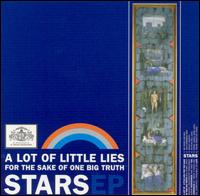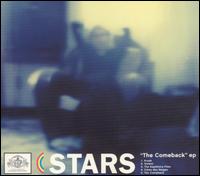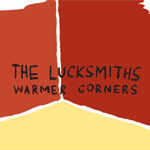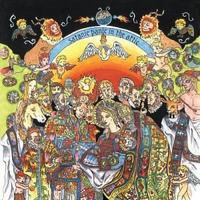
Am a Bird Now's majesty didn't come easily: Antony's self-titled debut was released five years ago on David Tibet's Durtro label, but only now has he found the perfect mix between style and substance. More stripped down than earlier offerings-- most of the focus is on piano and voice, although violin, viola, cello, sax, and flute are also heard-- there's no missing Antony's thoughtful words.
There are a number of guest vocal spots-- Devendra Banhart (gypsy incantations in the beginning of "Spiralling"), Boy George ("You Are My Sister"), Rufus Wainwright ("What Can I Do?"). All of these powerful singers are overshadowed by Antony's angelic chops, though Boy George ends up turning in a surprisingly moving performance. His duet with Antony explores private memory, brotherhood/sisterhood (regardless of gender), relationships, empowerment ("I was so afraid of the night/ You seem to move to places/ That I feared"), and wish fulfillment. (Really, grab the hankies.)
For his part, longtime Antony fan/champion Lou Reed does a little spoken "I was lying in my bed last night" intro and some chunky guitar chords on the doo-wop horn swagger of standout "Fistful of Love", which works itself up to a frothy Otis Reading devotional to love's bruises and the comfort of a familiar fist: "I accept and I collect the memories of your devotion on my body".
The mingling of friends is a treat but, heart in his hand, Antony can more than ably go it alone-- even though he spends so much of I Am A Bird Now fearing solitude and celebrating those rare perfect connections. Then again, in this carefully laid out record, the final track, "Bird Gurl", leads quite dramatically to full-fledged climax as our hero searches for and finds wings, finally taking a solo flight. Contrast this with the pathos of the opener's fear of falling asleep and that "middle place" between light/life and darkness/death. Of course, when the album begins again, so does the reality of perhaps having nobody to hold an aching dying head. But then, so does Antony's riveting trip towards his airborne epiphany. And on the cover, Candy's flowers remain in bloom.
More at
Pitchfork
Download



 NightSongs
NightSongs





























